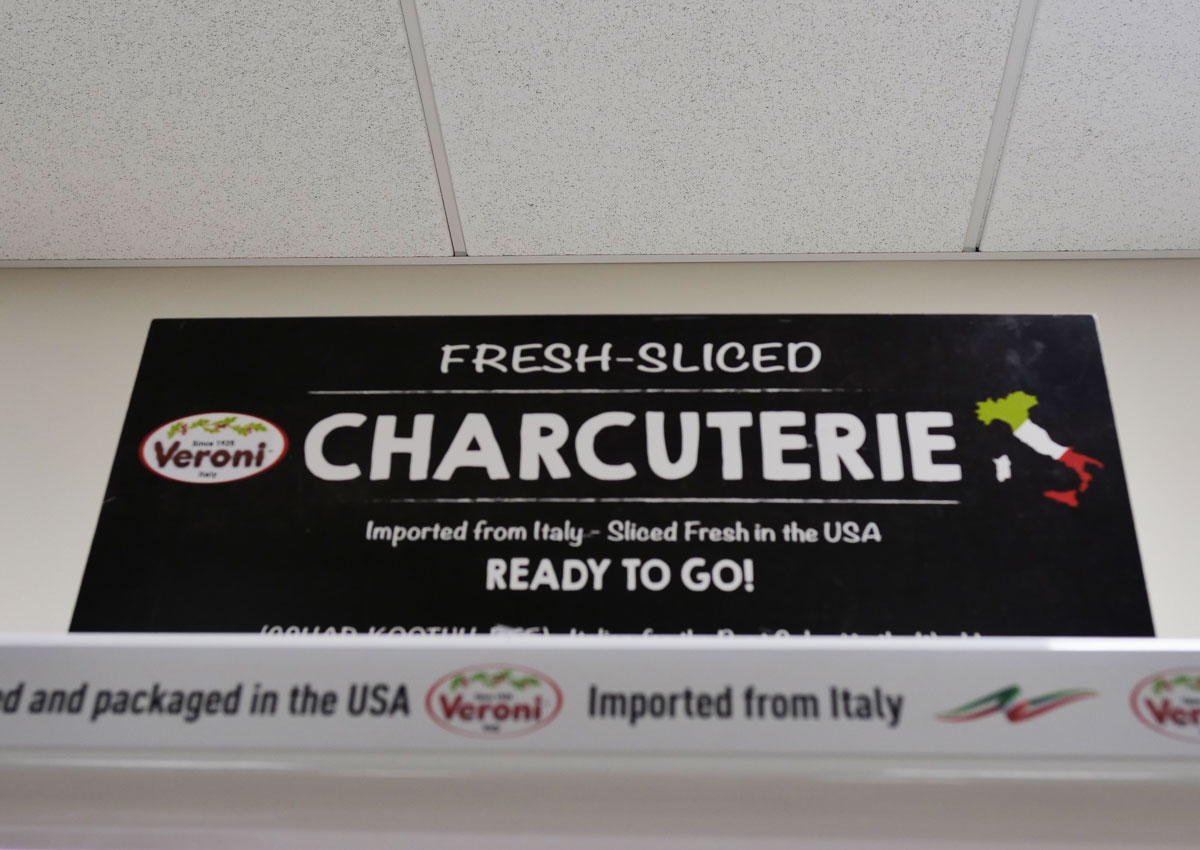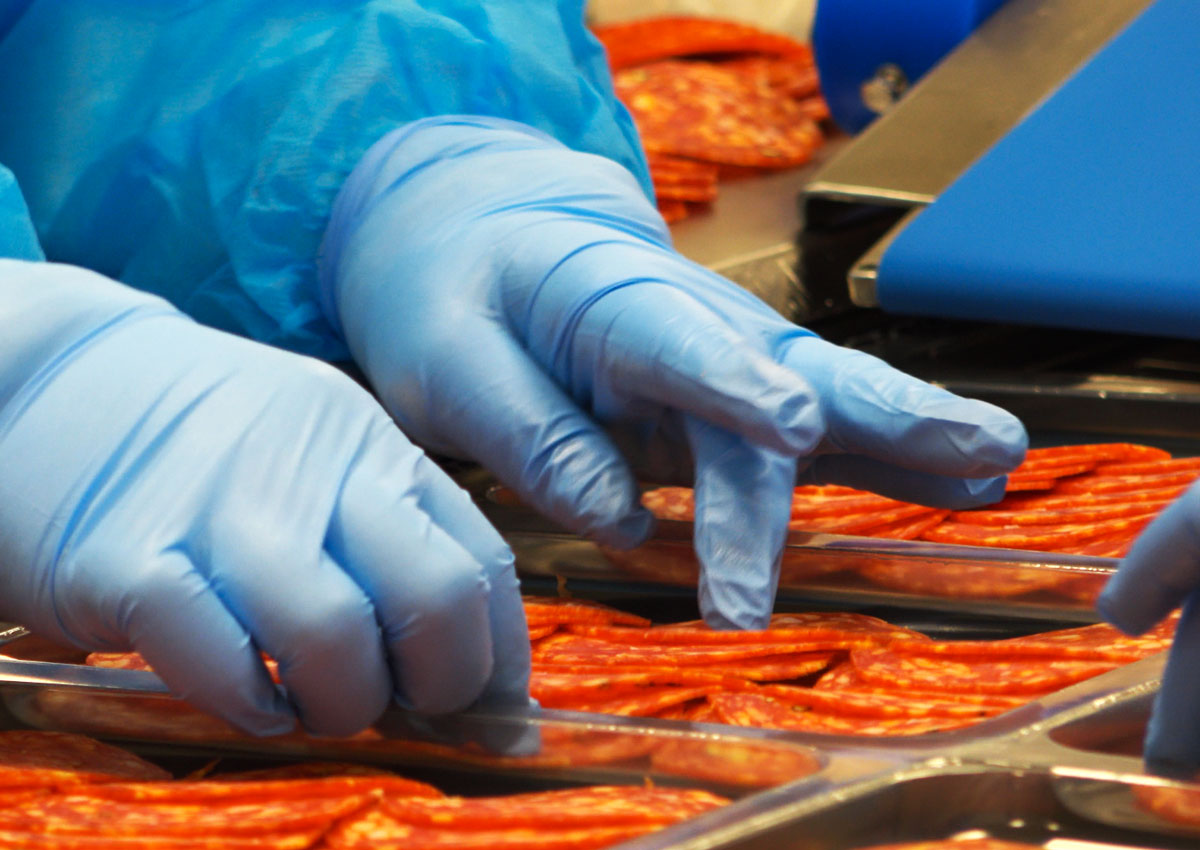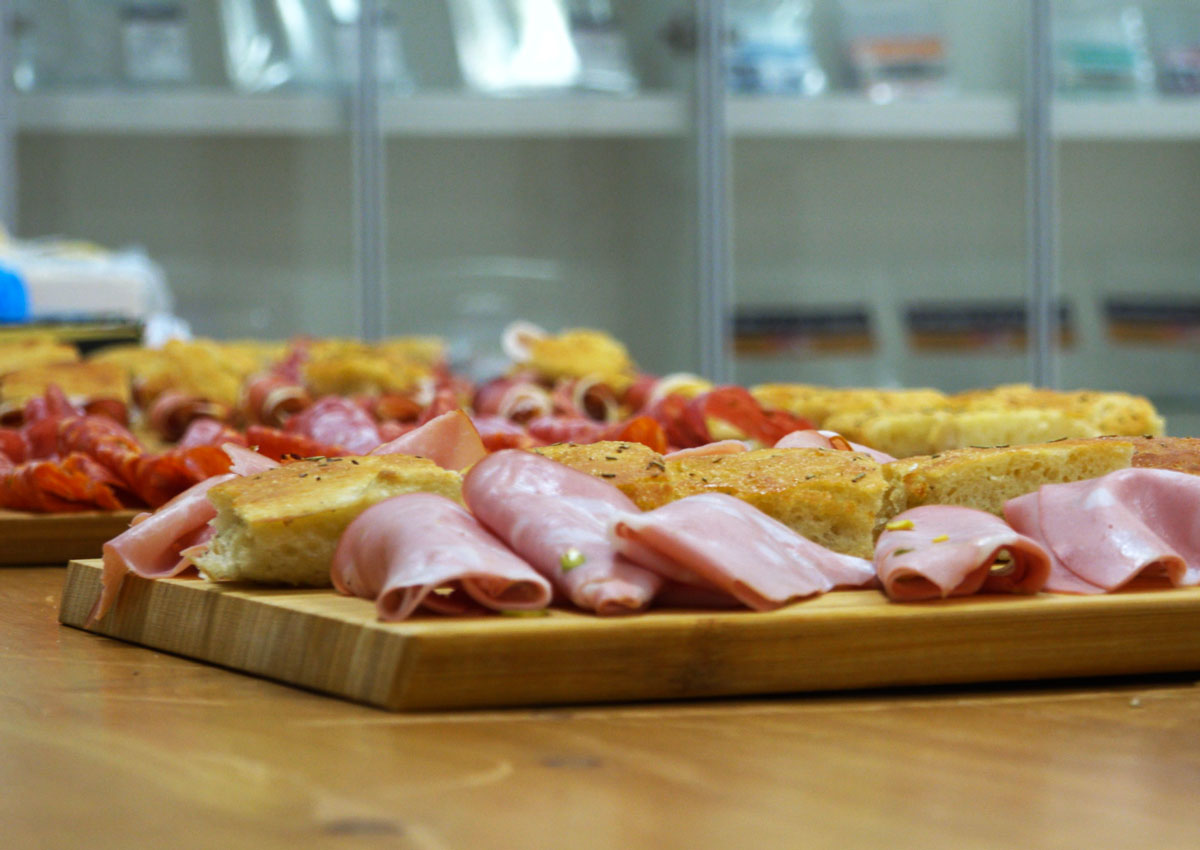
Veroni, the family-owned Italian cured meat specialist, currently in its fourth generation, is on a double mission in the United States – bringing its delicious mortadella, salami and prosciutto to new generations of American consumers while raising safety and quality standards to the highest levels.
Since opening its US plant in Logan Township, New Jersey, in July 2016, Veroni has been slicing and packaging fresh meats shipped in bulk from its facilities in Italy to better serve major American retailers.

Founded in 1925, the company has become a model in the food industry for investing in technological innovation and food safety to preserve the authentic flavor of fresh cured meats made in Italy.
At the NJ plant, where the air is filtered and pumped into the refrigerated areas, workers wear surgical masks, hair nets, rubber gloves, and shoe covers like in an operating room to make sure no contamination is brought in from the outside.
“We have raised the bar. The USDA supervisors use our plant to show to other meat inspectors how we ensure the best quality of the product,” Veroni USA CEO Antonio Corsano tells Italianfood.net.
 Antonio Corsano
Antonio Corsano
Veroni has obtained the highest standards of certifications in Europe and in the US. One of the first Italian companies to export salami to the US, Veroni has invested in High Pressure Pasteurization (HPP), a cold pasteurization process that allows the elimination of listeria while respecting the ingredients and keeping the product fresh without any thermal and chemical treatments.
“We are in the compartment of the ‘ready to eat’ and we must provide the safest and best quality products,” Corsano says. “Our mission is to be the leaders of imported cured meat in the US.”
Veroni runs eight plants in the northern Emilia Romagna region, renowned as the food valley of Italy. Every plant is specialized in its own production, such as mortadella and salami, ham, coppa, and pancetta. Such a level of specialization is rather unique in the industry, where a single facility can be used to manufacture more than one specialty.

At the NJ plant, Veroni has hired 45 workers and moved managers from Italy to train them to use its cutting-edge technology.
During the tour of the plant, our crew wore surgical kits and cleaned hands and shoes multiple times when moving from the packaging area – where the product arrives sealed, is checked for quality, put into boxes and labeled for shipping – to the clean rooms. Here the meat is sliced and packaged under the highest set of sanitation standards.

“The product is packaged under protective atmosphere. In the US, sliced products are mainly packaged under vacuum. Our product is pretty innovative,” says Stefano Poldi, the plant manager.
Corsano, which plans to add a sixth line to the US plant in the summer, is passionate about educating American consumers and retailers to the differences between Italian and American salami. American salami has a higher level of acidity and a lower level of water required to kill listeria that makes it dry and gives it an aftertaste, while the salami processed in Italy is milder, sweeter and smoother, the CEO said.

As more American consumers turn to meal kits and snacks for their busy life, Veroni plans to launch fresh ideas for the ‘ready to eat’ market. Under the “Aperitivo Italiano” and “Charcuterie” trends, the company has introduced new kits by pairing cured meat with high quality cheese, panini and pizza. “We try to be different, to meet demand from millennials and new generations,” Corsano says.
Explore the Veroni plant in New Jersey in our exclusive video tour
